News
-
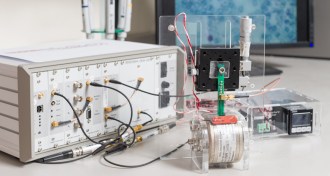 Microbes
MicrobesMagnets diagnose malaria in minutes
A small magnet-based device provides faster, more-sensitive malaria diagnosis in mice.
By Nsikan Akpan -
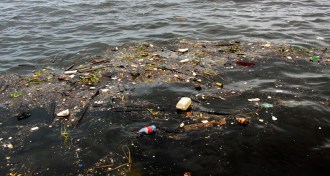 Oceans
OceansPlastic may take unexpected routes to marine garbage patches
By redefining ocean boundaries, researchers offer new insight to how litter moves through the oceans and who’s to blame for the floating clumps of trash.
By Beth Mole -
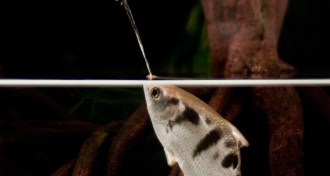 Animals
AnimalsArcherfish mouth is the secret of precision spit
Trained fish shoot down two hypotheses for their fine spit control but reveal fancy mouth work.
By Susan Milius -
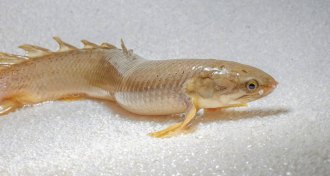 Animals
AnimalsA fish reared out of water walks better
The normally aquatic fish Senegal bichir raised on land suggests how ancient species might have transitioned into terrestrial ones.
By Susan Milius -
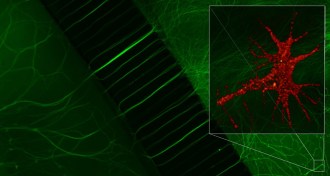 Health & Medicine
Health & MedicineRabies races up nerve cells
By hijacking a transporter protein and hitting the gas, the disease-causing rabies virus races up long nerve cells that stretch through the body, a new study finds.
By Meghan Rosen -
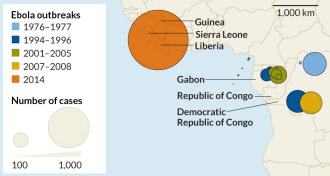 Genetics
GeneticsEbola genome clarifies origins of West African outbreak
Genetic analyses suggest that a single infected person sparked the ongoing Ebola epidemic in West Africa.
-
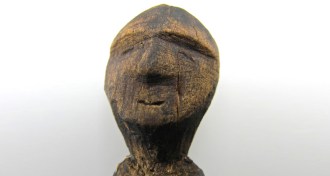 Anthropology
AnthropologySiberians came to North American Arctic in two waves
Siberian ancestors of the modern-day Inuit replaced a 4,000-year-old North American Arctic culture, a DNA study reveals.
By Bruce Bower -
 Health & Medicine
Health & MedicineTo grow new knee cartilage, look to the nose
Cartilage-making cells from the nose grew into patches that successfully replaced damaged or missing cartilage in the knees of goats and of humans.
By Nathan Seppa -
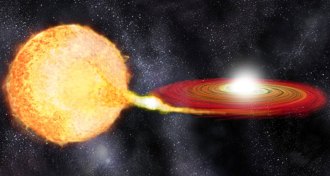 Astronomy
AstronomyWake of nearby supernova hints at explosion’s origins
Gamma rays from radioactive decay of cobalt formed in a nearby supernova reveal unprecedented details of the explosion’s aftermath.
-
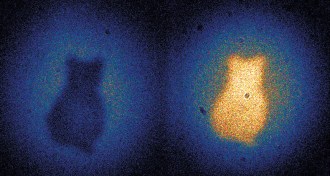 Quantum Physics
Quantum PhysicsBlind quantum camera snaps photos of Schrödinger’s cat
Quantum weirdness lets physicists snap photo without collecting incoming light from cardboard cat subject.
-
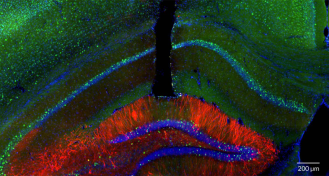 Neuroscience
NeuroscienceLaser light rewrites memories in mice
Mouse experiment demonstrates that good memories can be transformed into bad ones, and vice versa.
-
 Chemistry
ChemistryLiquid salts break through armored bacteria on skin
Compounds called ionic liquids can penetrate bacterial biofilms on skin to deliver antibiotics to potentially life-threatening infections.
By Sam Lemonick